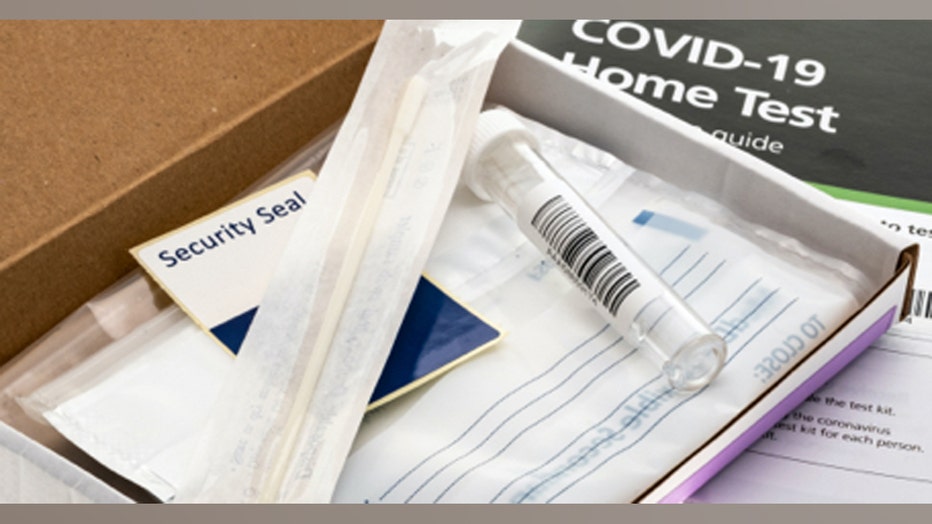North Texas counties create new ways to report at-home COVID-19 test results

North Texas counties create new ways to report at-home COVID-19 test results
With the flood of home COVID-19 test kits being sent out to people across the country, many are now wondering what to do with the results.
With the flood of home COVID-19 test kits being sent out to people across the country, many are now wondering what to do with the results.
With the government now providing four free COVID-19 tests for every home, there will likely be a drop in the number of people using the more accurate lab tests at in-person sites. That could create a challenge for health officials trying to track outbreaks in the community.
Denton and Tarrant counties took the lead in creating websites to track at-home test results.
Click here to report your case through Denton County.
Click here to report your case through Tarrant County.
"At-home tests are one more way people are getting tested, and we wanted to make sure we could capture what is happening in community transmission," Denton County Chief Epidemiologist Juan Rodriguez said.
But with the state and CDC not including at-home tests as part of the official count, calling them "suspected" cases, Dallas County has not yet taken a similar approach to its neighboring counties.
UNT Clinical Epidemiologist Dr. Shane Fernando said the increase in at0home tests will likely mean less information about community transmission.
"We are under-reporting the number of cases of COVID that exist in our community. That’s something that has been known for a while. Individuals who are asymptomatic, who feel like they have the cold, or might just have allergies, or a slight fever, may not necessarily go and get tested with a PCR or at their health provider. So we’ve always known there has been an under-reporting of COVID cases in our community. With increase in at-home tests, we expect that there will be an even greater number of unreported cases," Dr. Fernando explained. "That means that our public health systems are going to have a harder time predicting where and when outbreaks are occurring."
With the U.S. Government rolling out of four free at-home tests per household, the BBB also issued a warning to go directly to the website, COVIDTESTS.GOV, and stay away from links trying to direct people to the website.
"We are cautious about fake sites where you receive a link to order your tests, and these are phishing scams," said Amy Rasor, Fort Worth regional director for the Better Business Bureau. "You might see a redirect, it might look official with a U.S. Postal Service logo, but when you look at the actual web address, it won't match up."
RELATED: Free government COVID test kits now available: Everything you need to know

Free At-Home COVID-19 Tests (USPS)
Rasor added that if a site asks for anything more than your name email and address, it is likely a scam.
"The danger is identity theft or insurance fraud, asking for that insurance information and people will file claims on your policy," she said.
Lloyd Whelchel, chief of the White Collar Crime Unit in Tarrant County, also wants people to beware of fake in-person testing sites, where some scam artists even don hazmat suits to look official.
"When you get there, ask basic questions. What kind of test are you getting? What lab is it going to? Ask what their credentials are. If they can't answer those questions, they are obviously not a legitimate site," Whelchel said.
The Tarrant County District Attorney's Office said a key for people knowing their in-person testing site is legitimate is to ask their doctor for a list of locations.
And for those taking an at-home test, Dr. Fernando said people can report their test results to their doctor, who will then report the suspected case to the state and CDC.
MORE: Coronavirus Coverage

